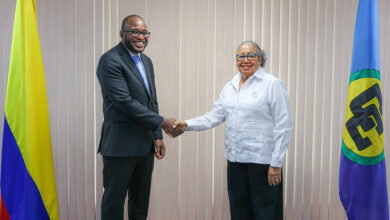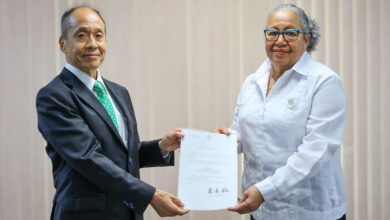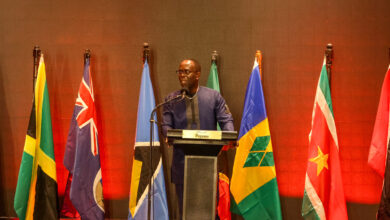The CARICOM Council for Human and Social Development has set the goal for the elimination of Rubella and Congenital Rubella Syndrome from the Caribbean Community by the end of the year 2000.
The Resolution, passed at the first Ministerial Meeting of COHSOD, held at the Crowne Plaza Kingston Hotel, from Monday, 20 April to Tuesday, 21 April, noted the high economic and social costs to the Region, if the Rubella virus was left unchecked. The Meeting was chaired by Jamaica Health Minister, the Hon. John Junor.
The Resolution, which was issued by COHSOD yesterday afternoon (Tuesday, 21 April), said that investment in Rubella elimination will bring tangible benefits within five years, since the cost of the elimination exercise is estimated at seven per cent of the cost of having to provide care and rehabilitation for cases of Rubella and Congenital Rubella Syndrome across the CARICOM Member States.
Minister Junor told the Conference that the Government of Jamaica has set aside some J$30 million in the 1998-99 budget towards this programme.
Dr. Barry Wint, Programme Manager, Health Development, CARICOM Secretariat, said that a mass immunisation programme was planned, to immunise the susceptible population in each Member State.
Several other proposals were made at the Conference, which was attended by Health Ministers, Permanent Secretaries and Chief Medical Officers, of CARICOM countries. Representatives from regional and international agencies, and CARICOM Observer nations also participated.
Ms Jacqulyn Joseph, Director, Human Development, CARICOM Secretariat, said that steps will be taken to address the problem of obesity and its relationship to chronic diseases in the Region. “Obesity is a growing trend, and a cause for great concern in the Caribbean, she pointed out.
And, in keeping with the drive to improve the health status of the Caribbean Community, greater emphasis will now be placed on reducing sexually transmitted diseases, especially among the young people, as well as intensifying resources to combat the rising trend of tuberculosis. This proposal arose from the presentation given by Dr. C James Hospedales, Acting Director, Caribbean Epidemiology Centre (CAREC).
In regard to the common registration process for physicians practising in CARICOM, the Health Ministers have agreed in principle to a system for common registration. However, Senator the Hon. Samuel Aymer, Minister of Health and the Civil Services for Antigua and Barbuda, recommended further input from the respective national Medical Councils before a final acceptance and implementation of any proposals.
COHSOD also announced that eight priorities have been identified, and new goals and targets are being established for programmes under Phase II of the Caribbean Co-operation in Health.
In other matters, the Conference examined the management of regional health institutions, with a view to streamlining their operations to better serve the CARICOM Member States, and the wider Caribbean Community.
Reports were provided by the Directors of the Caribbean Environmental Health Institute, the Caribbean Epidemiology Centre and the Caribbean Food and Nutrition Institute.
The Caribbean Regional Drug Testing Laboratory, the Commonwealth Caribbean Medical Research Council and the Regional Nursing Body also provided the Ministers and other officials with updates about their programmes.





